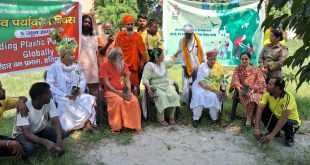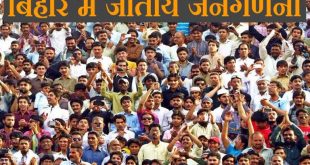Chandigarh: Union Minister Pishu Goyal said late on Sunday night after the talks with farmer leaders ended that the government has given minimum support price (MSP) to the cooperative societies NCCF (National Consumer Cooperative Federation of India Limited) and NAFED (National Agricultural Cooperative Marketing Federation of India). But it has been proposed to enter into a five-year (Five year) agreement with the farmers for purchasing pulses.
He said that apart from this, Cotton Corporation of India (CCI) has proposed to enter into a five-year agreement with the farmers to buy cotton crop at MSP.
Goyal said that farmer leaders will inform about their decision on the government’s proposals by tomorrow. The fourth round of talks between Union ministers and farmer leaders, which started in Chandigarh on Sunday evening, ended late night. After the meeting ended, Goyal said that the talks with the farmers were held in a cordial atmosphere.
He said, “We have proposed to cooperative societies NCCF and NAFED to enter into a five-year agreement with farmers to purchase pulses at MSP.”
Goyal said, “We have proposed that Cotton Corporation of India (CCI) will enter into a five-year agreement with farmers to purchase cotton crop at MSP.”
Union Agriculture Minister Arjun Munda, Commerce and Industry Minister Piyush Goyal and Union Minister of State for Home Nityanand Rai had reached Mahatma Gandhi State Institute of Public Administration located in Sector-26 for a meeting with farmer leaders.
Punjab Chief Minister Bhagwant Mann also attended the meeting. This meeting started at around 8.30 pm. Earlier meetings between Union Ministers and farmer leaders took place on 8th, 12th and 15th February but the talks were inconclusive.
This meeting has taken place at a time when thousands of farmers are standing in Shambhu and Khanauri on the border of Punjab and Haryana with their various demands and a large number of security forces have been deployed to stop the farmers’ ‘Delhi Chalo’ march from entering the national capital. are deployed.
Apart from the legal guarantee for MSP, farmers also demanded implementation of the Swaminathan Commission recommendations for the welfare of farmers, pension and loan waiver for farmers and farm labourers, justice for the victims of Lakhimpur Kheri violence, restoration of the Land Acquisition Act 2013 and They are also demanding compensation to the families of the farmers killed during the last movement.
Ahead of the meeting of farmers and ministers, earlier in the day the Samyukta Kisan Morcha (SKM) announced that Bharatiya Janata Party (BJP) in Punjab would be protesting for three days from Tuesday to pressurize the Center to accept farmers’ demands, including legal guarantee of MSP for crops. The residences of party (BJP) leaders will be surrounded.
SKM leader Balbir Singh Rajewal said they will protest in front of the residences of BJP’s Punjab unit leaders, including MPs, MLAs and district unit presidents, from Tuesday to Thursday.
Rajewal told reporters after the meeting of SKM leaders in Ludhiana that it has also been decided that they will protest at all toll barriers in the state and make them free for all commuters from February 20 to 22.
He said that SKM will not accept anything less than the ‘C-2 plus 50 per cent formula’ for MSP recommended in the Swaminathan Commission report. Farmer leaders Balkaran Singh Brar and Buta Singh and other leaders participated in this meeting.
At the same time, before the talks, farmer leader Jagjit Singh Dallewal said that the central government should not adopt the policy of procrastination and should accept the demands of the farmers before the code of conduct is implemented.
Lok Sabha elections can be announced next month. Dallewal told reporters at Shambhu border, “I want to tell the government not to adopt the policy of procrastination.”
He said that if the government thinks that it will continue the meetings till the code of conduct is implemented and then says that the code of conduct has been implemented and we cannot do anything… (yet) “the farmers will not return.” ‘
He said, “The government should find a solution to our demands before implementing the code of conduct.”
 Indian Thought Latest News & Views
Indian Thought Latest News & Views



